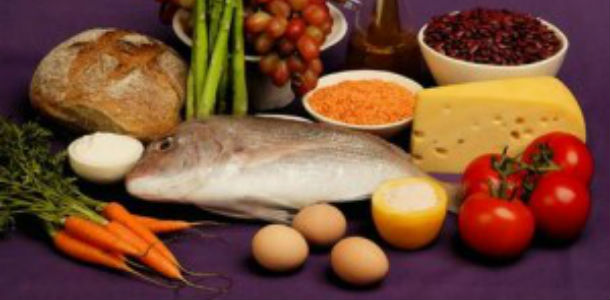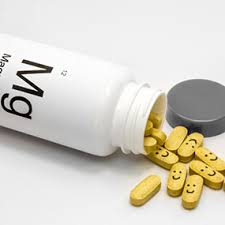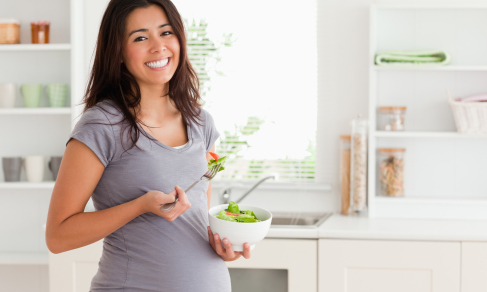Last menstrual period date:
Iodine for your pregnancy diet is essential for you and for your baby. It is one of the most essential minerals that a fetus needs for brain and physical development. But, if too much in your body, it may also affect your pregnancy. Find out more information here.

Iodine is commonly added to table salt in North America. We know this, and some purists specifically use only non-iodized salt, believing that the iodine added to the salt is either bad for you or else it alters the flavor of the salt. Iodine, however, turns out to be rather vital, not only for preventing miscarriage and stillbirth but, as was conclusively shown by a massive study co-researched by the Universities in Surrey and Bristol, England, for the healthy development of your baby.
The big question: “Should you add an iodine for your pregnancy diet?”
The answer in a nutshell: “Maybe.”
The ALSPAC study (stands for Avon Longitudinal Study of Parents and Children; also known as the “Children of the 90s” study) started tracking over 14,000 women who conceived in 1991 and 1992 and has been following the children ever since. As part of this study, urine samples were collected from 1,040 women in their first trimester and the iodine/creatinine ratio was calculated. If the result was less than 150 mcg/g, the woman was classified as iodine-deficient and if it was over, the woman was iodine-sufficient. Rather alarmingly, 67% of the women fell into the “deficient” category. Following birth, the children had their IQs tested at eight years of age and their reading skills assessed at nine. Even correcting for things like parental education and economic status and breastfeeding and what-not, the results still showed that women who didn’t have enough iodine in their systems during pregnancy had babies who were much more likely to score low on verbal IQ tests. They also scored low for reading – they had more trouble understanding what they were reading and they were more likely to make mistakes when reading. Even worse, the lower the mother’s iodine levels were, the worse off her kids were!
Another study (this one published in the Journal of Clinical Endocrinology & Metabolism) showed the same results but also revealed that even mild deficits impacted the development of the neural system and supplementing during childhood did not reverse or mitigate the damage.
A third study involving 228 children born to Tasmanian mothers at a time when the entire population was experiencing a mild iodine deficiency, found the same results. Children born after bakers switched to using iodized salt performed much better on IQ and reading assessments. Interestingly enough, iodine deficiency does not affect math ability, which could mean that iodine is required to build efficient auditory pathways and the auditory working memory structures.
Based on that study, recommendations were put in place to encourage and ensure sufficient iodine in the diet. This is one of the many reasons to encourage the consumption of fish, seaweed, and dairy products. Vegans or those who just don’t like either, should at least make sure they use iodized salt or, with the approval of their health-care provider, a prenatal vitamin that contains iodine.
Thankfully, iodine deficiency and the consequences are highly preventable. Instead of taking a supplement, simply include iodine-rich foods in your diet in order to get the 250mcg/day currently recommended for pregnant and nursing women. This makes it much less likely to run into iodine toxicity, which would also damage your baby’s neural development.
The best food sources of iodine are:
・ Iodized salt 71mcg per quarter teaspoon
・ Ice Cream (yay!) 21.3mcg/100g
・ Cheese 13.6mcg/40g
・ Seaweed (Nori) 16mcg/sheet
・ Egg, poached, 20.1mcg/55g
・ Oyster, raw 21mcg/13g
・ Swiss cheese 23.6mcg/40g
・ Milk 39.8mcg/250ml
・ Yoghurt, low fat fruit 33.4mcg/200g
・ Fish, Bream, baked, 35.2mcg/100g
・ Pink Salmon, tinned, brine drained 51mcg/85g
・ Seaweed (Red algae), 174mcg/5g
Do not just jump into taking iodine supplements without talking it over with your doctor: iodine toxicity can cause hyperthyroidism, will lead in turn to miscarriage and stillbirth.
My content




